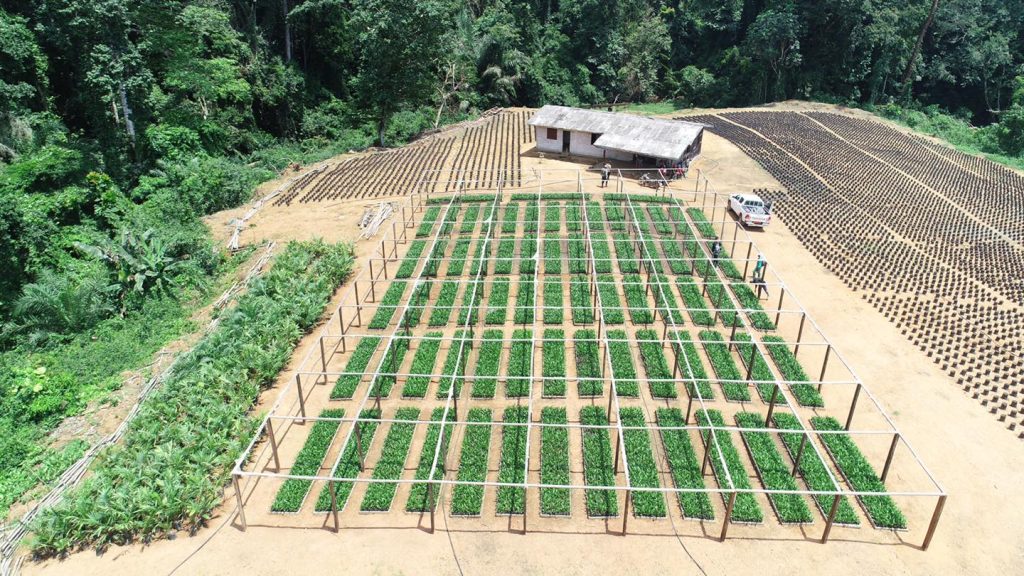On Friday 10 February 2023, the Camvert agro-industry handed over a donation of equipment to support the Campo-Ma’an National Park. Reopened in January 2023, after a year of closure due to the Covid-19 pandemic, the protected area created by decree No. 2000/004/PM of January 6, 2000 on an area of 264,064 hectares in southern Cameroon is home to 1,500 species of plants (114 endemic), 80 large and medium mammals, 390 invertebrates, 249 species of fish, 112 reptiles, 80 amphibians, 302 birds.
The donation of equipment by Camvert, whose palm tree plantation is located not far from the park, is intended to protect this rich biodiversity. “We reiterate our commitment to implement the clauses of the specifications and the activities of the environmental and social management plan. We will also maintain a strong dialogue with the local populations of our project and participate in economic and social development while protecting the environment,” explains Mahmoud Mourtada, the company’s managing director.
However, conservation organisations, including Greenpeace Africa, do not appreciate the social gesture made by Camvert to help conserve the biodiversity of the Campo Ma’an National Park. According to Greenpeace Africa, 6,000 hectares of forest have already been destroyed by the agro-industry, through sales of cuttings, largely illegal, out of the 40,000 hectares allocated to it in the provisional concession signed by the President of the Republic of Cameroon in 2022.
Read also-CAMEROON: Camvert and the forest peril in the Congo basin
For Ranece Jovial Ndjeudja, head of the forestry campaign at Greenpeace Africa, this action by the Camvert company is only a mask to make people forget the disasters and other crimes it commits on the ground. “It is incoherent to raze the forest and then present oneself as a firefighter for the conservation of the biodiversity of the said forest,” he said.
Based in the districts of Campo and Niete in southern Cameroon, the Cameroon Green Company (Camvert) aims to create a 50,000-hectare palm grove to produce 180,000 tonnes of crude palm oil and 18,000 tonnes of palm oil annually. For the company, the expected economic benefits of the project outweigh its negative impacts. In particular, it cites the creation of jobs (a thousand to date), the satisfaction of the local market’s needs for palm oil, which should reduce imports of this product, and the stimulation of the development of the oleochemical sector.
Boris Ngounou
